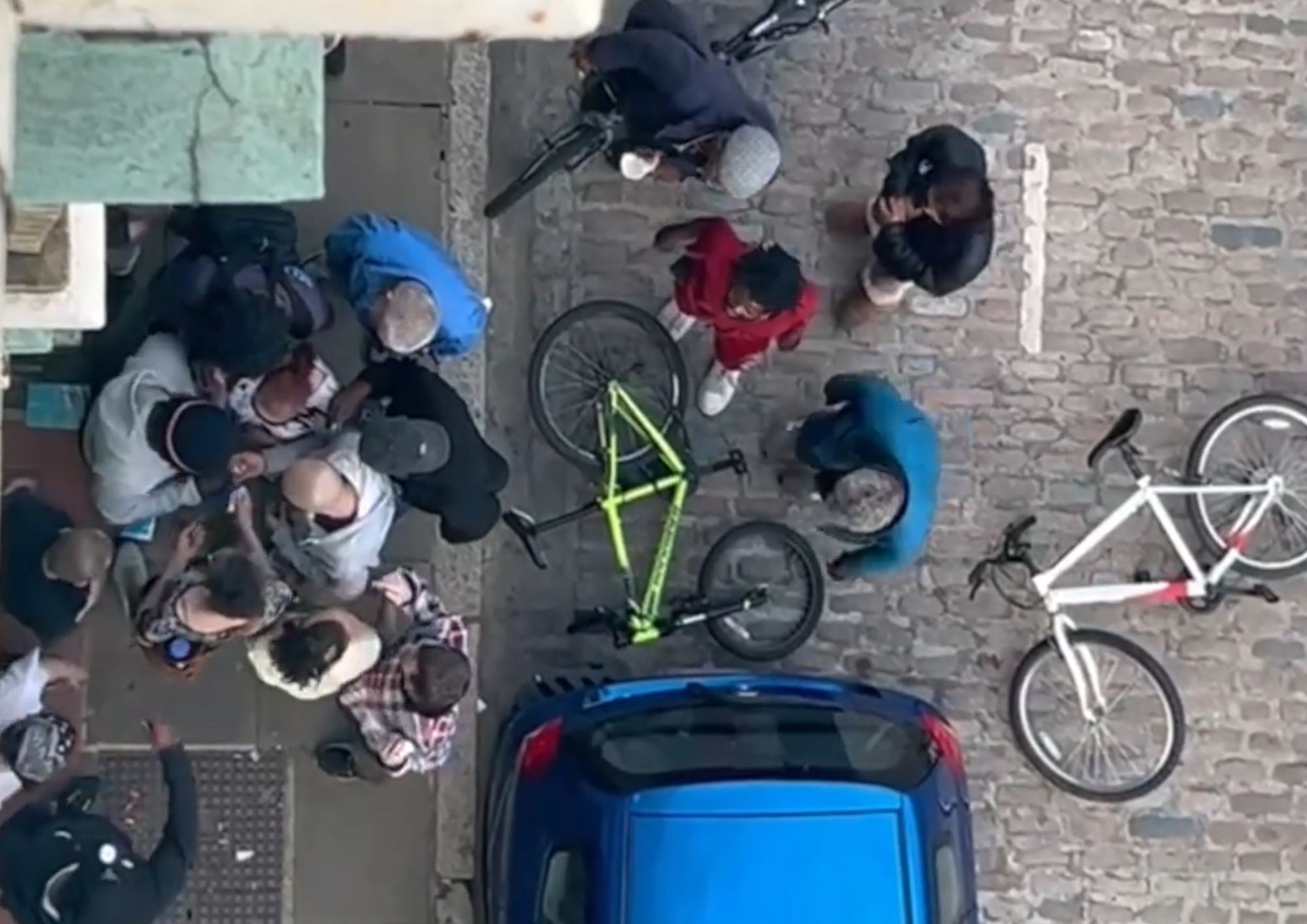Making people feel safe in their homes should be police priority
COMMENT: The truth is that it would take a dramatic political intervention to even begin to help haul these people out of the nightmares that their lives may have become
Thursday, 1st August 2024

The regular scene in Wicklow Street, as filmed from a flat balcony
IMAGES of a desperate group of people’s day-by-day existence apparently scrabbling for hard drugs in a quiet residential street are shocking on a number of levels, (Desperate residents say ‘drug deals’ on doorstep are not a police priority, August 1).
They will be shocking for the people living or working in Wicklow Street who are scared to walk down their own road out of fears for their safety, and all those who empathise with them.
These pictures are also shocking as a bleak portrait of the level of addiction that remains so deeply-entrenched across Camden, and perhaps most particularly in the old King’s Cross – still there next to its multi-billion pound regeneration neighbours.
The New Journal does not seek to demonise vulnerable people who have become overwhelmed-by and are dependent on drugs.
In any major city, there will be large numbers of people who have fallen on hard times and resort to “using” as a means of escape.
And there is a tipping point where the need to escape becomes so desperate that adhering to accepted codes of conduct – social behaviour – goes out of the window.
That is why we see this week a large group of people oblivious to the cares of others around them, to being under surveillance by CCTV or to the prospect or threat of any criminal conviction.
The truth is that it would take a dramatic political intervention to even begin to help haul these people, in any lasting fashion, out of the nightmares that their lives may have become.
It would take significant public spending – in secure housing and effective residential drug and alcohol rehabilitation programmes – to even begin to make any real difference.
We would need a cleaned-up and more caring culture in our hostels – one that is focused on turning people’s lives around rather than simply sustaining the status quo. But the definition of “change” touted by political parties in the run-up to an election is far too narrow.
Another definition that needs reassessing is the Met Police’s understanding of “high priority”. This vague classification has allowed police to fob-off residents for too long.
Due to “resourcing issues”, the Met no longer investigates the majority of public order offences, shoplifting and low-level assaults if officers are required to look at CCTV for more than 20 minutes.
Sir Keir Starmer’s new government has promised to be tough on “anti-social behaviour” and make a real difference to people’s lives. They are going to struggle without a properly funded police force and a council that has been stripped to the bone. But we are where we are.
A group of residents in King’s Cross deserve to feel safe in their homes and they do not feel like anyone out there could give a damn about it.